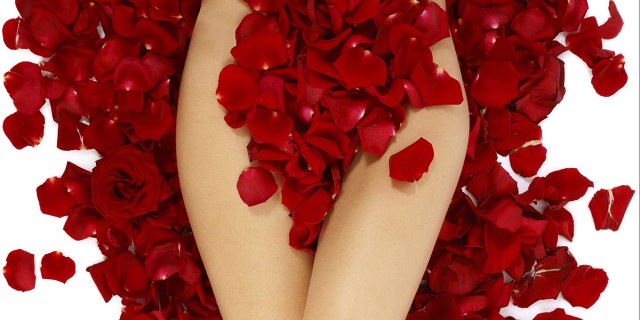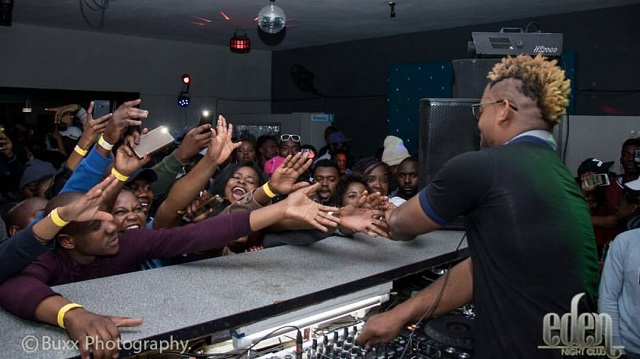Is it taboo to talk about menstruation?

Bongiwe Nkomazana
Menstruation is process is not a choice but makes up part of our build as women, the same way features like a small waist, a bigger derrière and a bulging chest make us female. I was walking in town the other day and as I dashed past one alley-way, I saw a mentally challenged woman going through trash and when she found a piece that I imagine was comfortable enough, she shoved it under her distressed dress
When we are on our period, why can we not just say so? Why do we have to use every other word in the dictionary before we can actually say menstruation or menstruating?
With over 100 euphemisms for menstruation, why is it still a taboo topic that is accompanied with disgust and awkward silence?
As a woman, I get how fun or uniting it can be for us as females to have a code name for that time of the month.
My issue, however, is how menstruation is seen as a badge of shame or a curse yet it is in fact the opposite. Most of us have done biology or science at one point in our lives and therefore have the basic understanding of what menstruation is and how it comes about but since we are talking about it, let me just throw in a simple definition just to refresh our memories.
Menstruation is the process in a woman of discharging blood and other material from the lining of the uterus at intervals of about one month from puberty until the menopause, except during pregnancy.
From that definition alone I can spot about four words that will make the average Zimbabwean uncomfortable. But lessons have never been learnt in our comfort zones so let us proceed.
This process is not a choice but makes up part of our build as women, the same way features like a small waist, a bigger derrière and a bulging chest make us female. I was walking in town the other day and as I dashed past one alley-way, I saw a mentally challenged woman going through trash and when she found a piece that I imagine was comfortable enough, she shoved it under her distressed dress.
I then realised that she was using whatever it was as a sanitary pad. My heart broke. That is when it truly hit me that there is no running away from menstruation and treating it as such a big secret really prevents the education and assistance that could come from open discussions around it.
Menstrual hygiene has become a prominent subject for gender equality, human rights and development and it is mostly the vulnerable females like the physically challenged, poor, orphaned, young etc that need to be seriously considered. More should be done to make it less of a disruption in the lives of these girls and women.
I believe that access to sanitary wear should be every girl’s right. Girls, in both rural and urban areas, loathe that time of the month because to them and their families it is an extra expense.
Some of you will say that eighty cents to a dollar and fifty cents is nothing to spend per month but let me drive the point home. Some people are living on under $2 a day and to have to remove from that a bulk of it for sanitary wear is not the easiest thing to do.
Can you believe that in this day and age, as we read articles online and do electronic transactions some girls somewhere are using newspaper, cloth, dung, leaves, animal skin and anything they can think of to hold their period?
Ladies, we all know how comfortable a pad is and how you can go about your life as per usual as long as it is in place.
Some girls will skip school to nurse a period because without sanitary wear they cannot run and jump and concentrate in class. Many girls and women face challenges with managing their periods safely due to limited access to affordable and hygienic sanitary materials and disposal options leaving many to manage their periods in ineffective, uncomfortable and unhygienic ways.
How do we move forward as a nation and race before we address and fix basic issues such as this one?
Yes it is an intimate situation and no woman wants to shout at the top of their lungs that they are riding the cotton pony but what do mensies symbolise?
First of all, they are a key sign of reproductive health. If you did not have a regular cycle or a flow at all, it would mean that something is amiss with your reproduction system.
Usually getting ‘a visit from aunt Flo’ every month means that you are a fertile maiden and that your eggs are probably first grade. Is it not satisfying to know that everything is functioning alright inside there?
To be able to have that ability to conceive is a miracle and your menstrual cycle is a part of that miracle. It is also believed that we are more beautiful and attractive before and during our period.
Our eyes are brighter and our smiles are whiter. Even though the Bible says that we are not to be touched during our menstrual days at least we are untouched and pretty. While some are excited to conceive, for some, getting your period is a sign that you are not pregnant. When the red cousin is late, you panic because you have accidently placed a bun in the oven. So really, periods are not that bad.
However, the only real downfall of mensies is pre-menstrual syndrome (PMS) and it is real. We are tired of men questioning it and saying we use the ‘myth’ as an excuse to slack and get away with bad behaviour or performance.
We are also over men blaming our true reactions to nonsense situations on PMS. First of all, PMS affects our bodies, not our minds and secondly women are too strong and too proud to allow cramps to slow them down and thirdly we are emotional all the time regardless of PMS but a little empathy… not sympathy would go a long way.
I would love for women to embrace their periods. The more comfortable we are with the fact that menstruation is a part of us and a part of life the less a choice the rest of the world will have but to acknowledge the struggle that comes with it.
This way, more efforts can go into making sanitary wear accessible to all women around the world and into creating a more open platform to fight long-standing stigmas against our menstruating bodies and learn about menstrual hygiene.











Comments